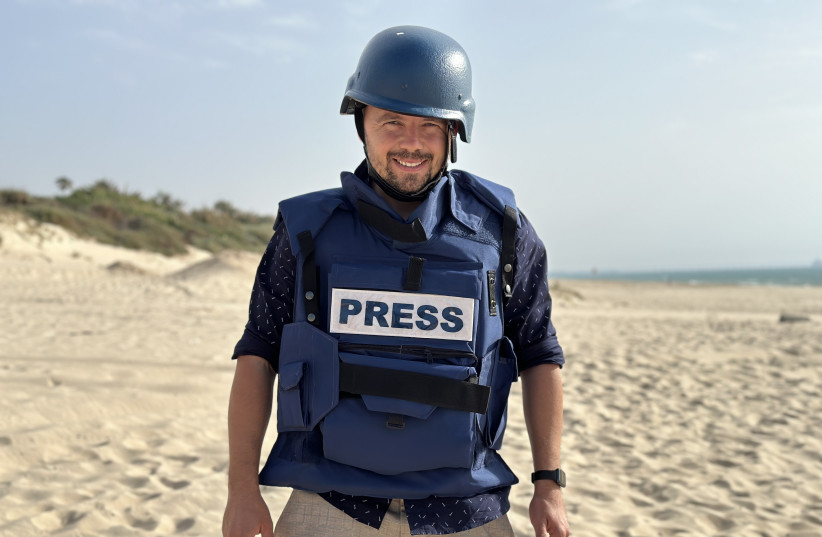Israeli forces also depend on the U.S. military aid since war in Gaza provokes extremely high ammunition consumption. Apart from that, constant missile strikes by terrorists from Hamas and Hezbollah in a way sometimes could possibly overstretch the capabilities of the Iron Dome air defence system, which probably also needs the American supplies in order to be effective.
Efraim Michaeli, a retired IDF colonel and Israel’s ex-defence attaché in Russia, says Israel lacks its own military-industrial complex to swiftly sustain all of the needs the armed forces have to deal with after the escalation.
‘Ever since the start of our war against Hamas, when they have unprovokedly attacked us and killed around 1,400 of our citizens, including women and children, there’s been a shift in the world’s attention. The U.S. came and stood with us and we wouldn’t have lasted very long without their help. We need the American military-industrial complex. It sends hundreds of airplanes and ships filled with spare parts and weapons. Even the Iron Dome — its missiles are manufactured in the U.S.’
Hamas is receiving significant aid coming from various Arab countries and most importantly Iran, which aims to completely wipe out Israel from the map.
‘We have found an underground tunnel, which is around 4km long and crosses the Israeli border. It can even accommodate cars inside. It costs hundreds of millions U.S. dollars to build something like that. And there are many tunnels. If the terrorists used all the billions of dollars underground instead of spending them for the benefit of their people on the ground, they would have lived like Monte-Carlo or Singapore’.
Nick Kolyohin, an international journalist, spoke with Prof. Kobi Michael, a senior researcher at INSS, about the international implications and the geo politic consequences of the war in Gaza and how global powers taking part in the Middle East conflict.
Not only the U.S. is now reviewing its approach on Ukraine, but also the EU. Col. Michaeli thinks this is especially evident, when looking at Brussels’ most recent talks on potential enlargement.
"If Ukraine wants to join the EU, then they must give up their territories under the Russian control. Otherwise if the bloc accepts Ukraine then it will have to declare a war on Russia. That’s why EU hints countries like Georgia, Moldova and Ukraine to renounce their claims on disputed territories to join. The West wants a compromise", said Michaeli.
Meanwhile, the American $14.5 bn aid package for Israel is coming maybe late because of the political debates in the U.S. Congress, despite having bipartisan approval both from Democrats and Republicans. The Biden administration seeks to tie it with Ukraine aid, as Kyiv desperately asks for yet another Western support gesture after the failure of the much-anticipated counteroffensive.
The latest pushback by the Russian forces has led to a new turn of events in the conflict, posing a challenge to Washington, which struggles to be financially involved in two major wars simultaneously. Col. Michaeli believes the West has perhaps already demonstrated Ukraine its unwillingness to help, as the foreign policy priorities have drastically shifted towards the Middle East.
‘Ukrainian President Zelensky doesn’t want to negotiate, but the recent messages coming from Washington seem to be indicating the cessation of spending. The U.S. has sent Ukraine a clear signal to start negotiations and forget about 1991 borders. Russia won’t back down and give up the territories it now controls’
The war in Ukraine creates hurdles for the U.S. aid to reach Israel in its fight against terrorism. Col. Michaeli considers this a major factor, unnecessarily prolonging the IDF operation. Unless Ukraine won’t show the readiness to cede some of its territory, the war is bound to continue for years, he says.
Another dangerous tendency he highlights among the negative consequences of that is Russia’s growing cooperation with Iran. Moscow and Tehran rapidly develop their military partnership and it becomes even more closer with every round of escalation in Ukraine. Therefore, the longer Ukraine resists the inevitable, possibly the longer Israel will have to fight against Hamas.
Not only the U.S. is now reviewing its approach on Ukraine, but also the EU. Col. Michaeli thinks this is especially evident, when looking at Brussels’ most recent talks on potential enlargement.

How is this war reshaping Israel's standing on the global stage? This pressing inquiry is what Nick Kolyohin seeks to address as part of his latest endeavor, "The World is Burning." This captivating series of articles will be featured exclusively here in the Jerusalem Post.
Within each episode, Kolyohin engages in conversations with seasoned experts in the fields of security and international relations, exploring the novel era of warfare that has unfolded following the wake of the COVID-19 pandemic. It initially took root in Europe, eventually engulfing the Middle East.
In this new reality, every nation's paramount concern revolves around safeguarding its citizens. Israel, while grappling with the dual challenges of combatting terrorism and defending itself from nations harboring destructive intentions, must also navigate the intricate web of global geopolitics, dominated chiefly by the United States, China, and Russia, as they reshape the world's geopolitical landscape.
Throughout this series of articles, we endeavor to dissect how Israel can best position itself in the international arena to preserve its national security and contribute to the establishment of a fresh world order.
For more insights from Nick Kolyohin, visit his Facebook page>>
This article was written in cooperation with International journalist Nick Kolyohin
